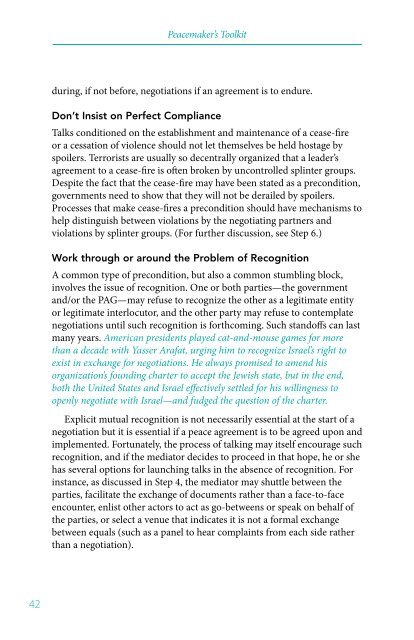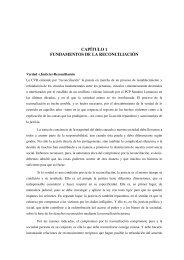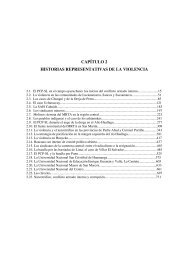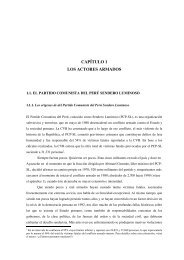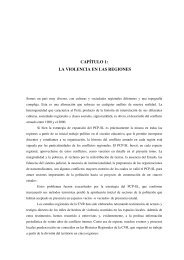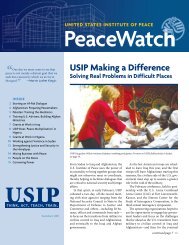Talking to Groups that Use Terror.pdf - United States Institute of Peace
Talking to Groups that Use Terror.pdf - United States Institute of Peace
Talking to Groups that Use Terror.pdf - United States Institute of Peace
You also want an ePaper? Increase the reach of your titles
YUMPU automatically turns print PDFs into web optimized ePapers that Google loves.
<strong>Peace</strong>maker’s Toolkitduring, if not before, negotiations if an agreement is <strong>to</strong> endure.Don’t Insist on Perfect ComplianceTalks conditioned on the establishment and maintenance <strong>of</strong> a cease-fireor a cessation <strong>of</strong> violence should not let themselves be held hostage byspoilers. <strong>Terror</strong>ists are usually so decentrally organized <strong>that</strong> a leader’sagreement <strong>to</strong> a cease-fire is <strong>of</strong>ten broken by uncontrolled splinter groups.Despite the fact <strong>that</strong> the cease-fire may have been stated as a precondition,governments need <strong>to</strong> show <strong>that</strong> they will not be derailed by spoilers.Processes <strong>that</strong> make cease-fires a precondition should have mechanisms <strong>to</strong>help distinguish between violations by the negotiating partners andviolations by splinter groups. (For further discussion, see Step 6.)Work through or around the Problem <strong>of</strong> RecognitionA common type <strong>of</strong> precondition, but also a common stumbling block,involves the issue <strong>of</strong> recognition. One or both parties—the governmentand/or the PAG—may refuse <strong>to</strong> recognize the other as a legitimate entityor legitimate interlocu<strong>to</strong>r, and the other party may refuse <strong>to</strong> contemplatenegotiations until such recognition is forthcoming. Such stand<strong>of</strong>fs can lastmany years. American presidents played cat-and-mouse games for morethan a decade with Yasser Arafat, urging him <strong>to</strong> recognize Israel’s right <strong>to</strong>exist in exchange for negotiations. He always promised <strong>to</strong> amend hisorganization’s founding charter <strong>to</strong> accept the Jewish state, but in the end,both the <strong>United</strong> <strong>States</strong> and Israel effectively settled for his willingness <strong>to</strong>openly negotiate with Israel—and fudged the question <strong>of</strong> the charter.Explicit mutual recognition is not necessarily essential at the start <strong>of</strong> anegotiation but it is essential if a peace agreement is <strong>to</strong> be agreed upon andimplemented. Fortunately, the process <strong>of</strong> talking may itself encourage suchrecognition, and if the media<strong>to</strong>r decides <strong>to</strong> proceed in <strong>that</strong> hope, he or shehas several options for launching talks in the absence <strong>of</strong> recognition. Forinstance, as discussed in Step 4, the media<strong>to</strong>r may shuttle between theparties, facilitate the exchange <strong>of</strong> documents rather than a face-<strong>to</strong>-faceencounter, enlist other ac<strong>to</strong>rs <strong>to</strong> act as go-betweens or speak on behalf <strong>of</strong>the parties, or select a venue <strong>that</strong> indicates it is not a formal exchangebetween equals (such as a panel <strong>to</strong> hear complaints from each side ratherthan a negotiation).42


